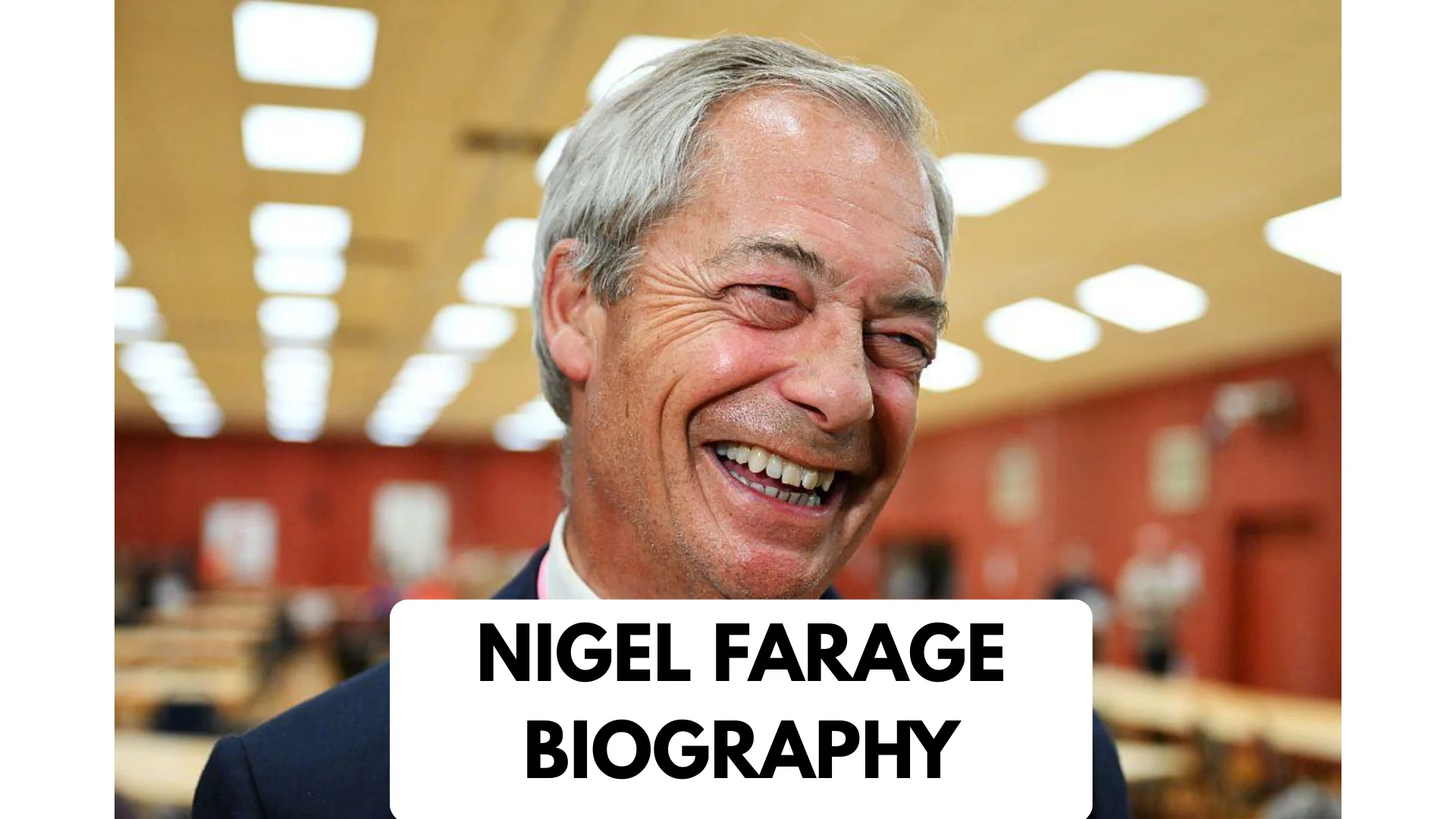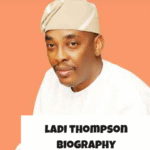
Nigel Paul Farage is one of the most recognised and polarising figures in modern British politics. Best known as a leading voice in the campaign for Brexit, Farage’s journey from City of London commodities trader to political activist, MEP, and MP reflects a career that reshaped UK political discourse.
This biography explores his early life, political milestones, personal life, controversies, and lasting influence.
Early Life and Background
Nigel Farage was born on 3 April 1964 in Farnborough, Kent, England.
He attended Dulwich College before entering the City of London, working as a commodities trader. Farage’s financial career would later reinforce his political image as an outsider to career politicians, lending authenticity to his populist messaging.
His family background and early work experience shaped both his public persona and his approach to political activism, emphasising independence and skepticism of established institutions.
From the City to Politics
Disillusioned with Conservative Party policies on Europe following the Maastricht Treaty, Farage entered politics in the early 1990s. He:
-
Joined the Anti-Federalist League
-
Co-founded the UK Independence Party (UKIP) in 1993
Farage continued to work in the City while building UKIP into a national political force, blending grassroots activism with media-savvy campaigning.
Rise in the European Parliament
Farage was first elected MEP (Member of the European Parliament) in 1999, representing South East England. Over subsequent terms, he became the public face of British Euroscepticism, known for:
-
Energetic, direct speeches
-
Media-friendly appearances
-
Criticism of EU bureaucracy
Under his leadership, UKIP achieved significant European election victories in 2009 and 2014, increasing pressure on the UK government to hold a referendum on EU membership. His campaigning played a pivotal role in the eventual Brexit vote of 2016.
The Brexit Party and Reform UK
Following UKIP’s decline, Farage launched the Brexit Party in 2019 (later Reform UK) to advocate for a decisive Brexit. He used the platform to:
-
Criticise mainstream parties
-
Demand political accountability
-
Channel populist sentiment
In 2024, he returned to frontline politics as leader of Reform UK and was elected MP for Clacton, marking a new phase in his political career.
Political Positions and Public Image
Farage’s politics are generally described as:
-
Right-wing populist
-
Strongly Eurosceptic
-
Critical of current immigration policies
He consistently emphasises national sovereignty, reduced EU influence over UK law, and scepticism toward international institutions.
Farage’s plain-speaking style and media engagement amplified his influence beyond formal political office.
Controversies and Criticisms
Farage’s career has included several controversies:
-
Critiques of divisive rhetoric
-
Internal party disputes
-
Coutts bank account closure (2023)
-
Late 2025 reports alleging conduct during his school years
He has denied or clarified some claims, and these incidents continue to fuel debate about his public persona and political fitness.
Personal Life
Farage has been married twice and has four children.
His second wife, Kirsten Mehr, is occasionally mentioned in media coverage. Farage is known for his earthy, conversational manner, cultivating an image of authenticity that complements his political style.
Net Worth
While exact figures fluctuate, estimates place Nigel Farage’s net worth in the range expected for long-serving politicians and media personalities. His income derives from:
-
Political positions
-
Media appearances
-
Speaking engagements
-
Publishing and advisory rolesLegacy and Influence
Farage’s impact on UK politics is significant:
-
Mainstreaming Euroscepticism
-
Driving the agenda that led to the Brexit referendum
-
Pioneering populist campaigning and media strategies
His legacy is debated: supporters hail him as a defender of sovereignty, while critics argue he fostered political division. Either way, his influence on British politics remains undeniable.
FAQs
Q1: When was Nigel Farage born?
A: 3 April 1964
Q2: Which political parties has he led?
A: UKIP, Brexit Party, and Reform UK
Q3: Was Nigel Farage an MEP?
A: Yes, from 1999 until the UK’s withdrawal from the EU in 2020
Q4: Is Nigel Farage an MP?
A: Yes, elected MP for Clacton in 2024
Q5: What controversies has he faced?
A: Rhetoric critiques, Coutts bank closure, and school-era allegations reported in 2025
Conclusion
From a City commodities trader to a defining figure in Brexit-era UK politics, Nigel Farage exemplifies how media savvy, populist messaging, and political persistence can reshape a nation’s political landscape.
Loved by supporters as a champion of sovereignty and criticised as polarising by opponents, Farage’s influence on British politics will continue to be debated for years.







Be the first to comment